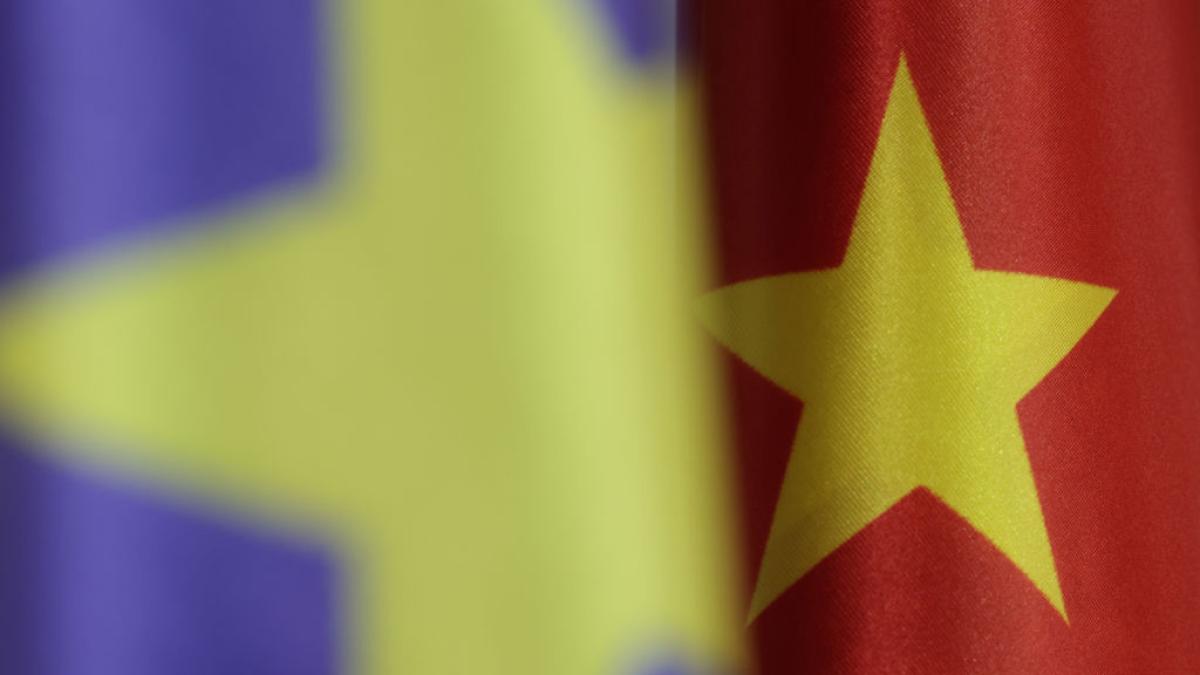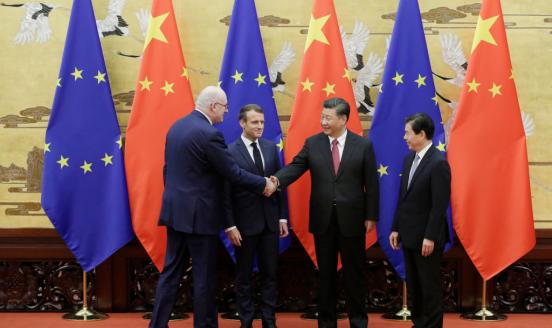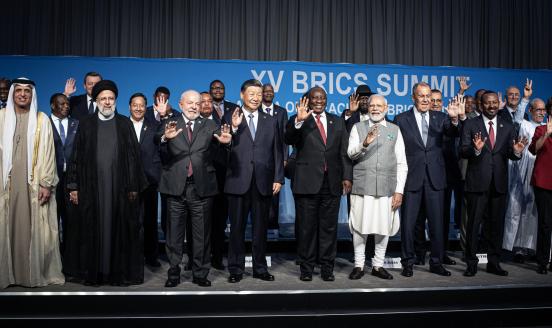Why the European Union-China summit is bound to disappoint
The European Union is increasingly disappointed with China over trade.

The last summit between the European Union and China – in April 2022 – was tense. It took place by videoconference soon after Russia’s invasion of Ukraine, towards which China has adopted a permissive stance. The next summit, on 7-8 December in Beijing, is unlikely to be easier, though this time trade could be the dominant issue.
In particular, the expected benefits of a reopened China for Europe, after three years of zero-COVID-19 policies in China, have not materialised. On the contrary, trade relations, which used to be balanced before COVID-19, are now very much in China’s favour with a €400 billion bilateral surplus with the EU.
The EU, a large net exporter, does not have a similar trade imbalance with any other large economy. For EU officials, this is evidence of poor access to the Chinese market, with many sectors still closed to foreign competition. It also signals China’s aggressive industrial policy, which is seen by the European Commission as unfair competition, given the large subsidies given by China to vital industries that compete with European ones – and not only in China, but increasingly in the EU and third markets.
The lack of market access is also increasingly clear in the negative growth of China’s imports for many months, notwithstanding the reopening of the economy. One major reason for plummeting EU exports to China is China’s localisation requirements, which make it very difficult for foreign companies to continue to rely on their external suppliers. Their substitution with Chinese domestic suppliers, a key objective of China’s landmark industrial policy, Made in China 2025 in a bid for self-reliance, is an important reason for the reduction in Chinese imports.
Meanwhile, China’s dominance of green tech, especially solar panels and electric vehicles (EVs), has led to a massive increase in EU imports from China. In solar panels, China global export share is 90%, while the EU industry had been destroyed since subsidies were lifted in the aftermath of the EU sovereign crisis in 2010-12. However, imports of EVs from China are much harder to swallow for the EU since the auto sector remains one of the EU’s top industries, with over 14 million jobs. This is probably why the EU has filed an anti-subsidy investigation with the World Trade Organisation against EVs produced in China and exported to the EU. This investigation will surely be the subject of complaint by Chinese officials during the summit, but it seems unlikely the EU delegation will give any signals of backing off.
The EU’s tougher stance might not yet be fully appreciated by the Chinese, who are used to the EU’s easing its positions in previous investigations, such as the 2014 anti-dumping investigation into solar panels. This time, the European Commission is expected to remain firm, given the much greater importance of the auto sector for Europe and the likely absence of counter offers from the Chinese side.
The EU Chamber of Commerce in China proposed in September over 1000 recommendations to ease barriers to market access to EU companies. China could draw from these, but this is unlikely to happen for two reasons.
First, the Chinese economy continues to underperform given underwhelming consumption and investment. A large trade surplus has become increasingly important as a source of growth and also to stem the negative impact on the balance of payments of large capital outflows and, thereby, on the value of the renminbi and on overall confidence in the economy.
Second, China has interpreted the 15 November Biden-Xi summit in California as a success in stabilising relations with the US. Regained confidence in China’s relations with the world’s most important nation will make Chinese officials less willing to offer to Europeans market access that the US may not have obtained.
Increasingly anxious requests from the EU side to rebalance its relationship with China are bound to clash with China’s self-confidence after the Biden-Xi summit. But there is also little space for China to offer more imports given the weakness of its economy and the need for a trade surplus. The EU-China summit is thus bound to disappoint, again.



